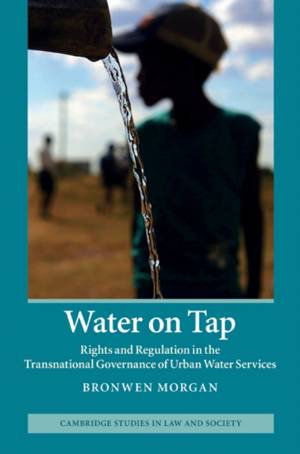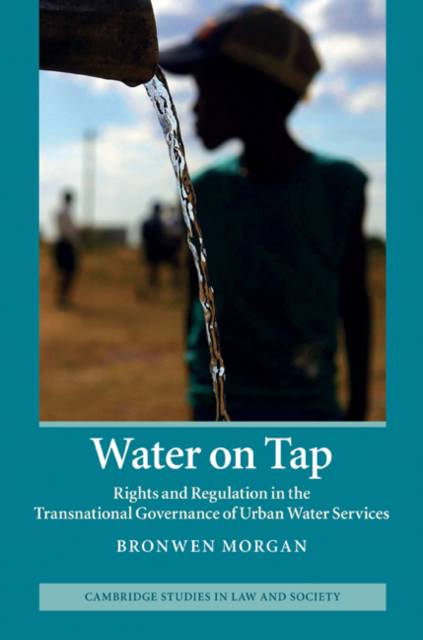
Door een staking bij bpost kan je online bestelling op dit moment iets langer onderweg zijn dan voorzien. Dringend iets nodig? Onze winkels ontvangen jou met open armen!
- Afhalen na 1 uur in een winkel met voorraad
- Gratis thuislevering in België vanaf € 30
- Ruim aanbod met 7 miljoen producten
Door een staking bij bpost kan je online bestelling op dit moment iets langer onderweg zijn dan voorzien. Dringend iets nodig? Onze winkels ontvangen jou met open armen!
- Afhalen na 1 uur in een winkel met voorraad
- Gratis thuislevering in België vanaf € 30
- Ruim aanbod met 7 miljoen producten
Zoeken
Water on Tap
Rights and Regulation in the Transnational Governance of Urban Water Services
Bronwen Morgan
€ 97,95
+ 195 punten
Uitvoering
Omschrijving
In the 1990s and mid 2000s, turbulent political and social protests surrounded the issue of private sector involvement in providing urban water services in both the developed and developing world. Water on Tap explores examples of such conflicts in six national settings (France, Bolivia, Chile, Argentina, South Africa and New Zealand), focusing on a central question: how were rights and regulation mobilised to address the demands of redistribution and recognition? Two modes of governance emerged: managed liberalisation and participatory democracy, often in hybrid forms that complicated simple oppositions between public and private, commodity and human right. The case studies examine the effects of transnational and domestic regulatory frameworks shaping the provision of urban water services, bilateral investment treaties and the contributions of non-state actors such as transnational corporations, civil society organisations and social movement activists. The conceptual framework developed can be applied to a wide range of transnational governance contexts.
Specificaties
Betrokkenen
- Auteur(s):
- Uitgeverij:
Inhoud
- Aantal bladzijden:
- 240
- Taal:
- Engels
- Reeks:
Eigenschappen
- Productcode (EAN):
- 9781107008946
- Verschijningsdatum:
- 6/06/2011
- Uitvoering:
- Hardcover
- Formaat:
- Ongenaaid / garenloos gebonden
- Afmetingen:
- 155 mm x 229 mm
- Gewicht:
- 476 g

Alleen bij Standaard Boekhandel
+ 195 punten op je klantenkaart van Standaard Boekhandel
Beoordelingen
We publiceren alleen reviews die voldoen aan de voorwaarden voor reviews. Bekijk onze voorwaarden voor reviews.











